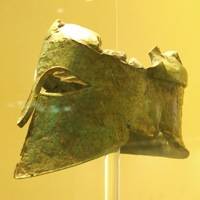Christians on the Move: The Book of Acts: The Continuing Work of Jesus Christ Through the Apostles and the Early Church (What the Bible is All About Bible Study Series) by Henrietta C. Mears, Bayard Taylor and Dr. Gary S. Grieg

A Fine Introduction to New Testament History Published in 2012 by Gospel Light Henrietta C. Mears (1890-1963) Part of a larger series of Bible studies based on Henrietta C. Mears' larger book that looks at every book in the Bible, What the Bible Is All About. This series takes her commentaries and uses them as the springboard for a Bible study. Personally, I did not do the Bible study. I saw the book and thought it would be an interesting look at the early history of the church. I used it as a history and read it the way the original text was intended to be read, although I did glance at some of the Bible study questions from time to time. The text is easy to read and very approachable. The author is good about noting when some areas are a little unsure and gives the reader the most probable answer (for example, it is not entirely clear if Paul worked when he went to a new city to preach, but he probably did based on some of his comments). If there are references to











